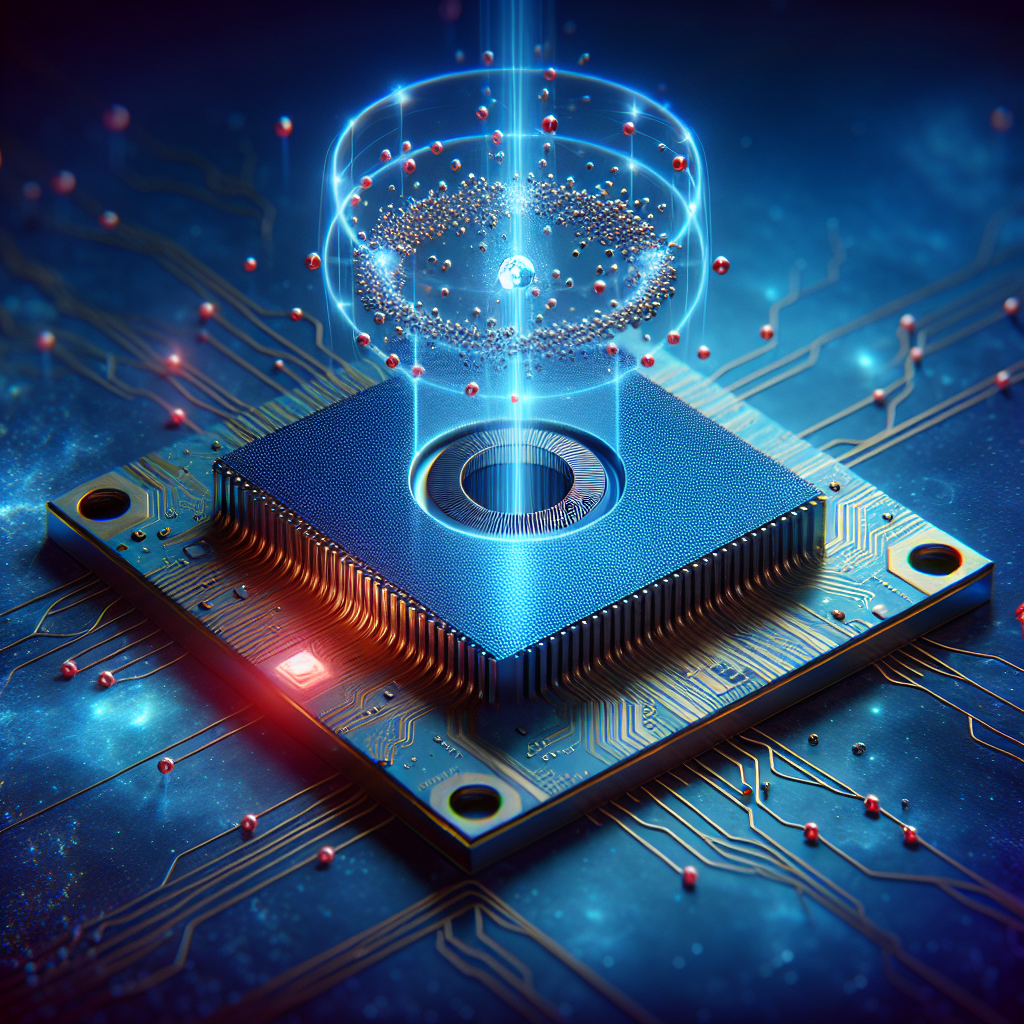Science
New Magnetic Technique Promises Breakthroughs in Quantum Computing

Recent advancements in quantum computing have introduced a revolutionary magnetic technique that could significantly enhance the stability and efficiency of quantum systems. Researchers are optimistic that this innovative approach will address long-standing challenges, ultimately bringing quantum technology closer to practical applications across various sectors.
Understanding the fundamentals of quantum computing is crucial. Quantum computers leverage the principles of quantum mechanics, using qubits rather than classical bits. Unlike traditional bits, which can only represent a 0 or a 1, qubits can exist in multiple states simultaneously due to a phenomenon known as superposition. Additionally, entanglement allows qubits to be interconnected, enabling unprecedented parallel processing capabilities.
Despite the remarkable potential of quantum computers, current systems face significant hurdles. A primary challenge is decoherence, which causes qubits to lose their quantum state, undermining their computational advantages. Addressing these issues is essential for fully realizing the power of quantum computing.
Magnetic Technique: A Promising Solution
The recent development of a magnetic technique has emerged as a promising solution to enhance the performance of quantum computers. This approach utilizes magnetic fields to manipulate and control qubits with greater efficiency. While researchers are still exploring its specific mechanisms and applications, early results indicate strong potential.
By employing tailored magnetic fields, researchers can gain finer control over qubits, resulting in improved coherence times and reduced error rates. This precision is vital for executing quantum gates—the building blocks of quantum algorithms. Magnetic techniques help encode information into qubits in a manner that protects against external noise, thereby increasing the overall fidelity of computations.
Scalability remains a significant barrier in the field of quantum computing. Traditional systems, often based on superconducting circuits or trapped ions, struggle to scale to the thousands or millions of qubits required for practical applications. The magnetic technique could simplify interactions and integration, facilitating seamless scaling and enabling the construction of larger and more sophisticated quantum processors.
Operating quantum computers requires extremely low temperatures to minimize thermal noise, resulting in costly and cumbersome cooling systems. The magnetic technique may reduce the need for such stringent temperature controls. Researchers are investigating how magnetic fields can stabilize qubits at higher thermal regimes, potentially allowing quantum computers to function in standard room temperature environments.
Implications for Quantum Algorithms
The magnetic technique also has significant implications for quantum algorithms. By lowering error rates and increasing coherence, it can enhance algorithms used for optimization problems, cryptography, and simulations in material science. For instance, advancements in drug discovery could emerge from faster calculations of complex molecular interactions, leading to effective treatments and innovative materials. Furthermore, improvements in cryptography could result in unbreakable codes that protect sensitive information across various sectors, including finance and national security.
As research progresses, interdisciplinary collaboration among physicists, engineers, and computer scientists will be essential to unlocking the full potential of the magnetic technique. While initial results are promising, rigorous experimental validation and optimization will be necessary to bring these advancements into practical use.
The magnetic technique signifies not only a technical breakthrough but also a philosophical shift in the approach to quantum computing. By rethinking the foundations of qubit control and scalability through magnetic methods, researchers may be on the verge of a future where quantum computers become integral tools for solving previously insurmountable problems.
In conclusion, the introduction of the magnetic technique marks a pivotal moment in the evolution of quantum computing. Its ability to enhance qubit control, improve scalability, and reduce error rates suggests a bright future for quantum technology. While challenges persist, the potential impact of this innovation spans numerous industries and everyday life, signaling the dawn of a new era in quantum computing. The journey is just beginning, and the possibilities are as expansive as the quantum realm itself.
-

 Science4 weeks ago
Science4 weeks agoALMA Discovers Companion Orbiting Giant Red Star π 1 Gruis
-

 Top Stories2 months ago
Top Stories2 months agoNew ‘Star Trek: Voyager’ Game Demo Released, Players Test Limits
-

 Politics2 months ago
Politics2 months agoSEVENTEEN’s Mingyu Faces Backlash Over Alcohol Incident at Concert
-

 World2 months ago
World2 months agoGlobal Air Forces Ranked by Annual Defense Budgets in 2025
-

 World2 months ago
World2 months agoMass Production of F-35 Fighter Jet Drives Down Costs
-

 World2 months ago
World2 months agoElectrification Challenges Demand Advanced Multiphysics Modeling
-

 Business2 months ago
Business2 months agoGold Investment Surge: Top Mutual Funds and ETF Alternatives
-

 Science2 months ago
Science2 months agoTime Crystals Revolutionize Quantum Computing Potential
-

 Top Stories2 months ago
Top Stories2 months agoDirecTV to Launch AI-Driven Ads with User Likenesses in 2026
-

 Entertainment2 months ago
Entertainment2 months agoFreeport Art Gallery Transforms Waste into Creative Masterpieces
-

 Business2 months ago
Business2 months agoUS Government Denies Coal Lease Bid, Impacting Industry Revival Efforts
-

 Health2 months ago
Health2 months agoGavin Newsom Critiques Trump’s Health and National Guard Plans









